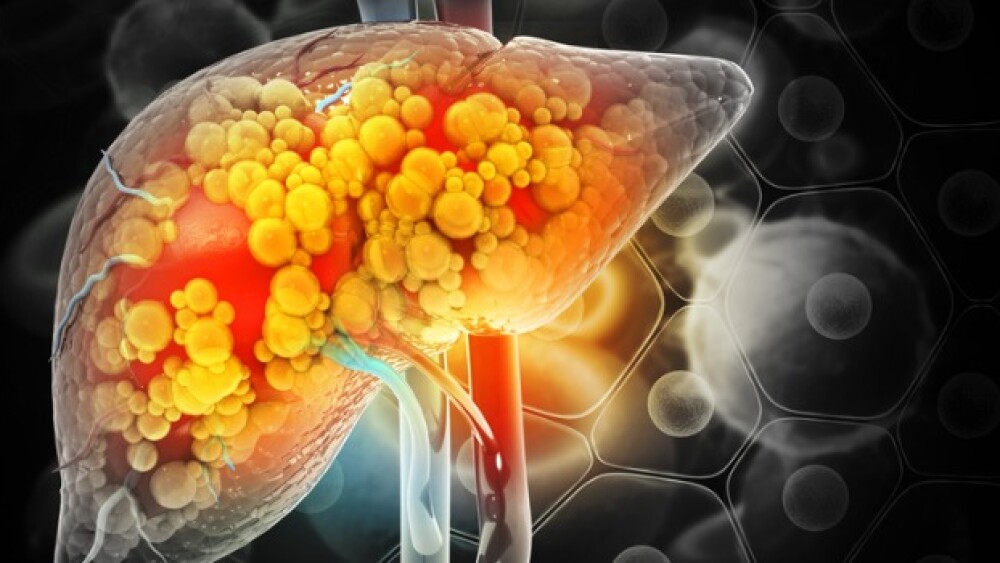Madrigal Pharmaceuticals announced late-stage results published Thursday in The New England Journal of Medicine for resmetirom as it awaits a March 14 PDUFA date.
Pictured: Illustration of diseased liver/iStock, Mohammed Haneefa Nizamudeen
Madrigal Pharmaceuticals’ oral thyroid hormone receptor beta-selective agonist resmetirom was superior to placebo at achieving resolution of nonalcoholic steatohepatitis and improving liver fibrosis, according to Phase III trial results published Thursday in The New England Journal of Medicine.
Resmetirom, which has the potential to become the first and only medicine approved for nonalcoholic steatohepatitis (NASH), has a PDUFA date set for March 14. According to Madrigal’s announcement, resmetirom is the first investigational drug to achieve fibrosis improvement and NASH resolution primary endpoints in a Phase III trial.
Madrigal initially announced positive Phase III results in 2022 for the MAESTRO-NASH trial, which pitted resmetirom against a placebo in patients with NASH with significant fibrosis.
Thursday’s trial results for MAESTRO-NASH provided more detailed efficacy and safety data published in the NEJM.
“MAESTRO-NASH is the only Phase III study in NASH to achieve both primary endpoints that FDA proposed as reasonably likely to predict clinical benefit: NASH resolution with no worsening of fibrosis and fibrosis reduction with no worsening of NAFLD activity score,” according to Madrigal.
The results posted in the NEJM showed NASH resolution with no worsening of fibrosis was reached in 25.9% of patients in the 80mg group and 29.9% for those in the 100mg group. Only 9.7% of patients in the placebo group showed resolution or no worsening of fibrosis and ached a p-value of p<0.001.
Fibrosis improvement by at least one stage and no impact on the NAFLD activity score was shown in 24.2% of patients in the 80mg group and 25% in the 100mg dosage form, with 14.2% recorded in the placebo group. This metric earned a p-value of p<0.001.
Madrigal also touted that multiple secondary endpoints were achieved, such as the statistical reduction in liver enzymes, fibrosis biomarkers, imaging tests, as well as atherogenic lipids and lipoproteins.
“As a liver-directed therapy that has demonstrated efficacy in both reversing fibrosis and resolving NASH in a pivotal Phase III clinical trial, we believe resmetirom will change the treatment paradigm for patients with NASH with significant fibrosis if it receives accelerated approval from the FDA,” Madrigal CMO Becky Taub said in a statement.
Madrigal contends that Thursday’s results also reinforce the safety profile of resmetirom.
In terms of adverse events, transient diarrhea and nausea were reported at the beginning of therapy but no increase was noted after the first few weeks of treatment and no there were no instances of drug-induced liver injury.
“The unprecedented efficacy and safety results from the pivotal MAESTRO-NASH Phase III trial provide Madrigal with a unique opportunity to establish resmetirom as the foundational therapy for NASH with significant fibrosis and transform care for patients who currently have no approved treatment options,” Madrigal CEO Bill Sibold said in a statement.
Tyler Patchen is a staff writer at BioSpace. You can reach him at tyler.patchen@biospace.com. Follow him on LinkedIn.






